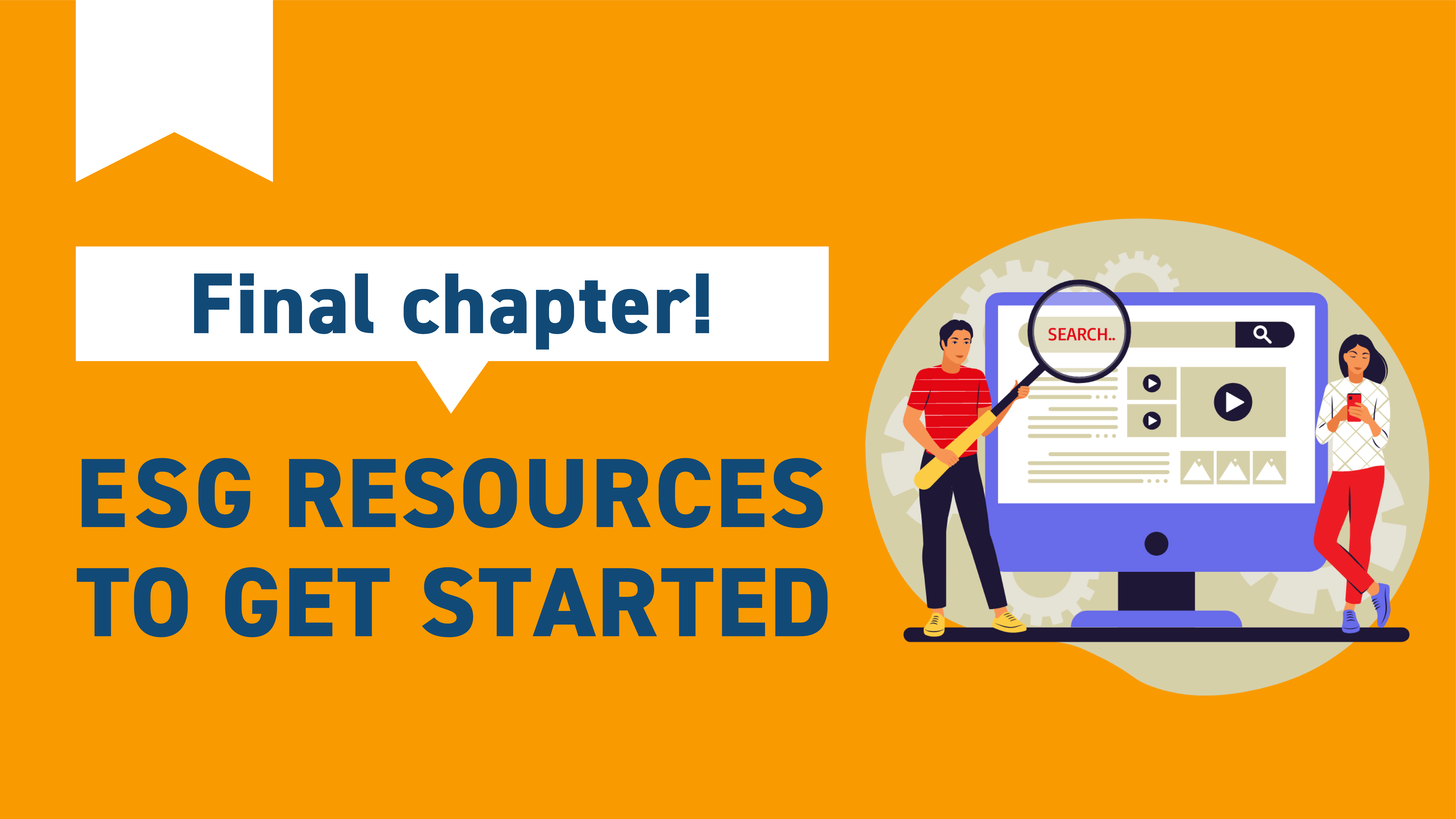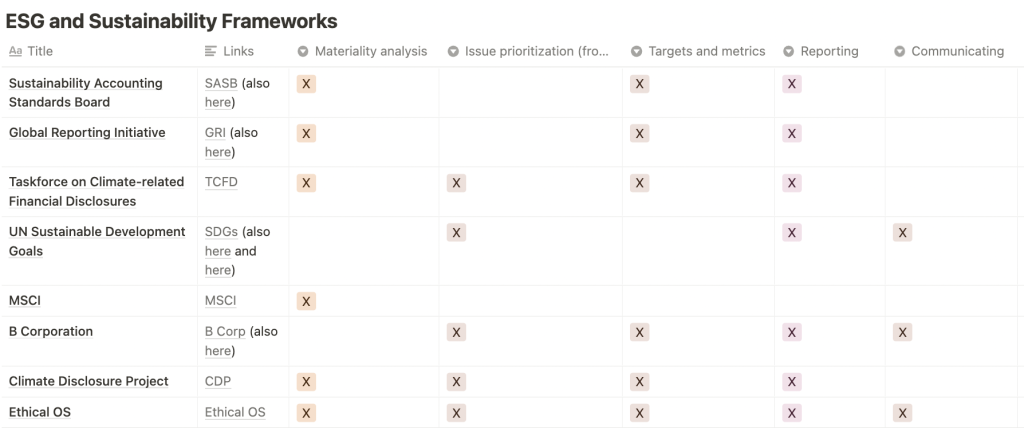
The original blog post in Japanese was published on August 12, 2022.
This is the final chapter of our current “Startup ESG Playbook” series. We have covered everything from the definition of ESG to how to share and communicate about ESG. We would like to conclude with a summary of resources that can help a company kickstart ESG integration.
Utilizing ESG and sustainability frameworks
Unlike areas such as finance and accounting, there is currently no one agreed-upon framework or standard that must be used when companies define and report on their ESG priorities; rather, there are a host of ESG/sustainability frameworks that can be leveraged. For startups, we believe it is most efficient to use the frameworks as a check to make sure they haven’t missed critical materialities in each of the three ESG categories.
Most companies opt to leverage several frameworks when developing their ESG strategy. They ultimately end up with a hybrid model they can use to set actions and goals, measure their outcomes, and report on and communicate their progress.
Here is our view of how some of the top frameworks can be best leveraged. Each of the frameworks has aspects that make it more or less useful depending on the phase of the ESG strategy development process or the characteristics and goals of the company.
You can also access the links to each from here.

Resources by ESG domain
Below are tips and resources to get you started in each of the Environmental, Social, and Governance domains.
Environmental
Carbon emissions measurement
Get a rough estimate of the company’s carbon emissions from free calculators (e.g., Carbon Trust, ON A MISSION, Planetly, Sustain.Life).
Sign up for Leaders for Climate Action (which also provides a free calculator to members!) and/or Tech Zero to join a community of like-minded founders who are also working toward net zero.
When ready, consider paid tools to conduct more-precise emissions measurement, as there are many great options available; for solutions reachable for smaller companies, we are most familiar with:
- Globally: Pathzero, Plan A, Planetly, Supercritical
- Japan: Asuzero, Zeroboard, booost technologies*
*Targeted toward larger enterprises
Emissions reduction
What actions can be taken within the HQ or, if applicable, other offices? Encourage small actions from employees, such as going paperless or optimizing electricity usage, including heating and cooling.
Look into available solutions from major data storage providers (likely already used by the company).
Social
DEI
Steps to create a diverse, equitable, and inclusive startup.
Remote work and employee benefits
Tips on how to implement effective remote work in a startup.
For employee benefits, which are often influenced by local laws and customs, this article is a good reference for the US.
Ethical risks
The EthicalOS toolkit is helpful when considering the ethical risks involved in critical design elements.
There are also forthcoming tools that can be used to better understand and assess the risks of AI, including potential ethical issues.
Governance
Board composition
Then, plan how to adapt the current board to the ideal state. An expansion beyond current networks is critical to finding the right board candidates.
Map the current composition of the company’s board of directors and determine the ideal skill-set matrix. The Tokyo Stock Exchange’s Code of Corporate Governance (version June 2021) requires listed companies to publish a skills matrix for their boards of directors.
Data privacy and security
First, ensure that the company’s data privacy and security policies are in line with privacy laws.
Benchmark against peers and what they publish.
When drafting a data privacy and security policy, drawing on frameworks such as Ethical OS and Tech Risk Zones can be helpful.
We’d love to hear your feedback!
Over nine blog posts, we’ve shared MPower’s overall thinking and approach to ESG integration. Especially as a resource geared towards startups, we believe it’s the first of its kind in Japan.
ESG approaches and actions vary depending on a company’s factors such as stage, maturity, industry, and location, among others. Our goal with the Playbook is to offer general tips, rather than to prescribe a definitive approach. If you or others at your startup are interested in discussing ESG with MPower, please contact us here.
The Playbook is available on Notion, where it is enriched with further information and case studies of domestic and overseas companies that integrate ESG, such as Mercari, Raksul, and Canva. We plan to update the content periodically to reflect the latest information. We look forward to your feedback!
- Send us your comments and suggestions here.
- If you would like us to feature your company as a case study, please fill out this form.
We thank Trista Bridges for her contributions to this post.